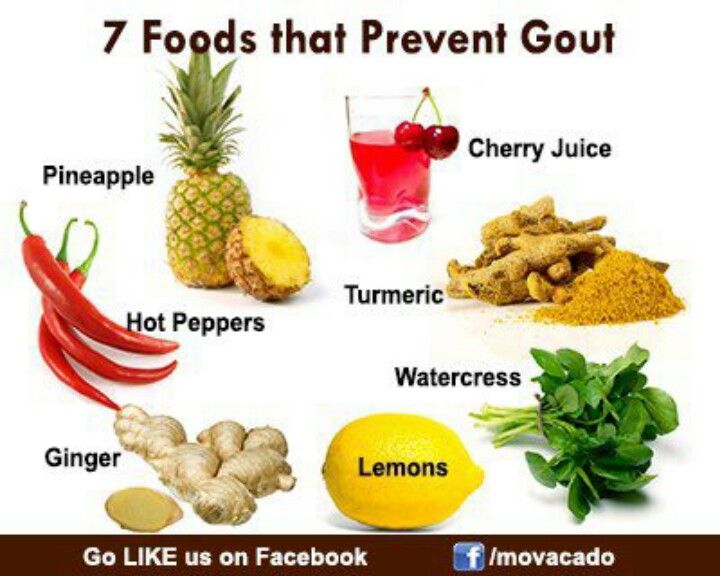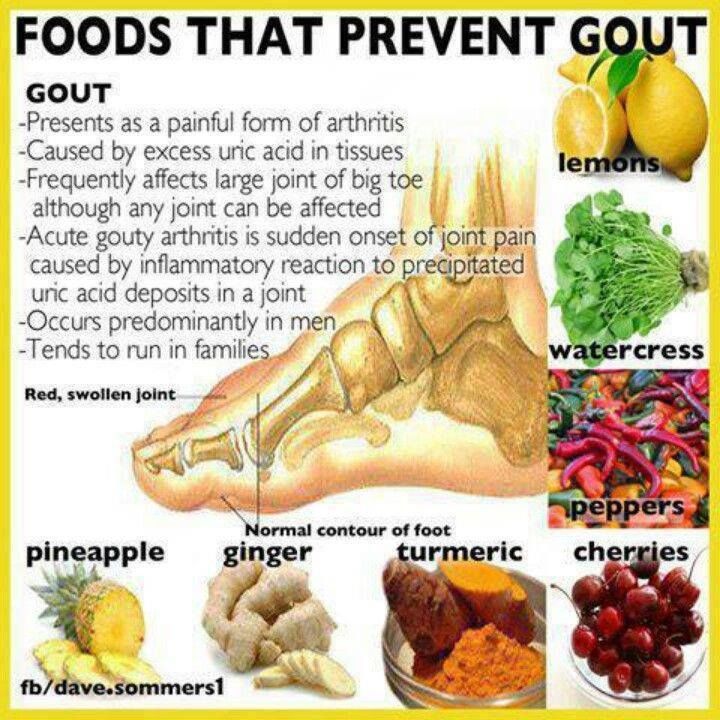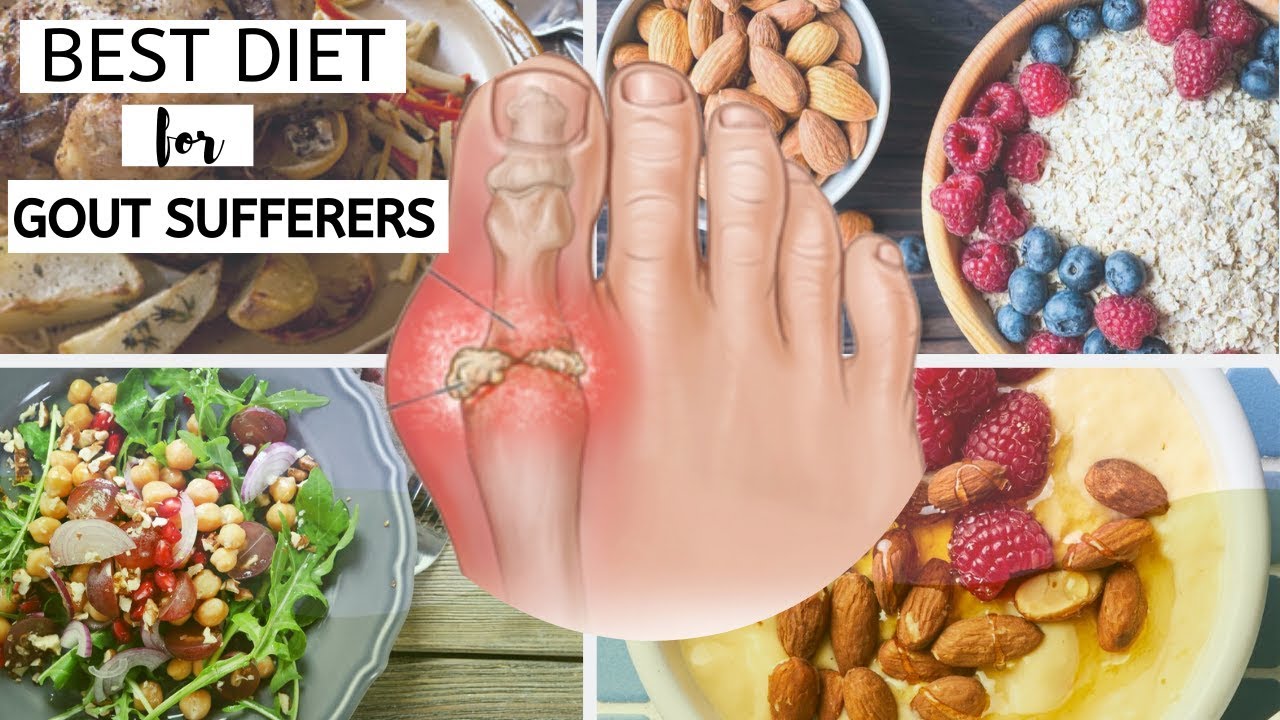Aspirin And Diuretics Significantly Increase Gout Risk
Not exactly foods to avoid with gout, but the ingestion of some common medications sharply raise the risk of a gout attack.
Specifically, low doses of aspirin, which one in three middle-aged Americans takes regularly to help prevent heart disease .
The emphasis is on low doses because aspirin has a dual effect on uric acid levels. Very high doses above 3,000 mg promotes excretion of uric acid , whereas low doses prevent excretion .
In a study of 49 elderly patients, just 75 mg of aspirin per day increased blood uric acid levels by 6% within one week. A daily dose of 150 mg kept levels high during the second week, before coming down with 300 mg doses in the third week .
Considering the typical dose for heart disease prevention is 81-325 mg per day, it is no real surprise this dosage is associated with a doubling in gout risk. In fact, even the use of a low-dose aspirin for two consecutive days increases risk of recurrent gout attacks .
Another type of medication known to trigger gout is diuretics. They are typically used to treat high blood pressure and oedema, and if feasible should be discontinued in gout sufferers.
Im by no means recommending you cease your medications if you have gout, but its important to understand the pharmaceutical triggers. First speak with your doctor and closely monitor uric acid levels before making any changes.
And if you need a temporary painkiller, choose paracetamol or ibuprofen. No aspirin.
Weight Management And Exercise
The Arthritis Foundation emphasizes how important it is for people with gout to manage their weight.
Obesity is a risk factor for developing gout. If a person with gout has excess weight, losing a few pounds can help them:
- reduce pressure on painful joints
- lower the risk of heart disease
- build strength and flexibility
To achieve this, the person should ask a doctor about a suitable diet to help them manage their weight and an exercise plan.
Anyone who smokes should also ask a doctor to help them with a plan to quit.
The Mediterranean diet contains plants, grains, and healthy fats. It may help people manage their weight while encouraging them to eat healthily.
Red Meat And Organ Meat
Red meat and organ meats are high in purines. Eating these foods increases the uric acid levels in the blood and the risk of gout and gout attacks.
Keep your red meat and organ meats intake low. Chicken has moderate amounts of purines, and therefore should be eaten in moderation.
Protein is important for the body, and though you may need to limit protein from some animal sources, you can still get protein from other sources. Low-fat dairy seems to decrease the risk of gout and is a good source of protein in the diet. Other protein foods you can eat include eggs, nuts and nut butters, beans, and tofu.
Meats to avoid:
- Beef, pork, and chicken livers
- Other organ meats, such as kidney or heart
- Wild game
- Red meat
- Poultry
- Processed meats, such as salami and prosciutto
Don’t Miss: Side Effects Of Allopurinol And Alcohol
Gout And Diet: Foods And Drinks To Avoid
Gout is an arthritic condition that can cause sudden, severe joint pain. If you are experiencing symptoms of gout, the NHS recommends that you see a doctor for treatment during an attack and to help prevent further attacks.
We asked Emer Delaney, a dietitian who has worked in some of London’s top teaching hospitals, to explain how diet and lifestyle can affect the condition.
Which Foods Should You Avoid When You Have Gout

Purines are compounds that are found in specific food and drink and they change to uric acid in the body. Most meat and seafood are high in purine and can increase uric acid levels in the body. These therefore should be limited during episodes of a gout attack and portion size should be reduced. Common examples of foods high in purine include anchovies, sardines, offal foods such as liver, kidney, sweetbreads, game, goose, minced meat, mussels, partridge, roe, scallops, herring, gravies, stock cubes and meat and yeast extracts.
Also Check: Gout In Heel Pictures
Processed Foods And Refined Carbs
The modern Western diet is often high in processed foods and refined carbohydrates. In addition, processed foods and refined carbohydrates have been linked to an increased risk of type 2 diabetes, heart disease, and weight gain.
A 2017 study looked at gout incidence in people who followed either a Western diet or the Dietary Approaches to Stop Hypertension diet. The researcher found the DASH diet was associated with a lower risk of gout, whereas the Western diet was associated with a higher risk of gout.
To help prevent gout symptoms, its best to limit highly processed foods and beverages and foods high in refined carbohydrates, such as sweets, baked goods and pastries, chips, crackers, cookies, candies, soda, ice cream, white breads, and some pre-made frozen meals.
Eating highly processed foods and refined carbohydrates in moderation will not only help with your gout, but your overall health as well.
Most Soy Should Be Fine
Soy foods like tofu, soy milk, and edamame have moderate amounts of purines. Traditionally doctors have cautioned against eating too much soy for people with gout. One study found that soybeans, soymilk, and soy powder increased uric acid in the blood significantly. However, larger population studies have recently told a different story. Several have reported that not only are soy products harmless for gout patients, but also people who eat more soy tend to have a reduced gout risk.
You May Like: Is Tofu Good For Gout
Which Foods Are Safe For Gout
Find out which foods to eat and which to avoid if you have gout.
Question: I havegout. Can you tell me which fruits, vegetables, meats or seafoods I should eat or avoid? Is there any type of alcohol wine, beer, spirits that is better or worse for me than others?
Answer: Dietary management of gout is very restrictive and doesnt always work to control gout, so a combination of medication and diet may be the best way to treat your gout. In addition to medications that treat the inflammation and other symptoms that occur during a gout attack, medications exist that can treat the underlying metabolic condition of hyperuricemia too much uric acid in the blood.Hyperuricemia can occur either when the body produces too much uric acid or when the body does not excrete enough uric acid. Drugs exist to treat both causes.
Purine compounds, whether produced in the body or from eating high-purine foods, can raise uric acid levels. Excess uric acid can produce uric acid crystals, which then build up in soft tissues and joints, causing the painful symptoms of gout. Dietary management focuses on reducing the amount of uric acid in the system and attaining and maintaining a healthy bodyweight.
The primary dietary modification traditionally recommended is a low-purine diet. Avoiding purines completely is impossible, but strive to limit them. You can learn by trial and error what your personal limit is and which foods cause you problems.
High-Purine Foods Include:
Nutrition
Make Healthy Foods For Gout Sufferer
Besides presenting foods to avoid with gout, there are some foods that can be eaten for people with gout. You can eat sweet potatoes, curried carrot, and ginger soup. When you consume the pureed root vegetable, you will feel comfort especially in cold winter days. These foods can warm your body. Sweet potatoes and carrots can be categorized as the foods with the low purine. You can make those foods into soup or the others.
Don’t Miss: Is Almond Milk Good For Gout
Which Other Lifestyle Factors Can Affect Gout
While there are no controlled studies or evidence on the effect of lifestyle changes on the incidence of gout, expert opinion is that positive changes in lifestyle can be beneficial to the management of gout. Being overweight is not recommended for gout suffers and the available evidence indicates that losing weight may helpful. Dietary modifications to achieve a healthy body weight are recommended, however the use of crash, high-protein and low-carbohydrate diets should be avoided. Slow and steady weight loss is ideal and support from a dietitian should be sought to help develop a sustainable and balanced weight loss plan. Rapid weight loss is not recommended as it can increase the amount of uric acid in the body leading to an increased chance of a gout attack.
Regular exercise such as swimming or walking is also recommended as it may help reduce the frequency of gout attacks. In addition, it may have a beneficial effect on associated co-morbidities such as type 2 diabetes, hypertension and insulin resistance.
What Other Guidelines Should I Follow
- Increase liquid intake. Drink 8 to 16 cups of liquid each day. At least half of the liquid you drink should be water. Liquid can help your body get rid of extra uric acid.
- Limit or avoid alcohol. Alcohol increases your risk of a gout attack. Beer contains a high amount of purine.
- Maintain a healthy weight. If you are overweight, you should lose weight slowly. Weight loss can help decrease the amount of stress on your joints. Regular exercise can help you lose weight if you are overweight, or maintain your weight if you are at a normal weight. Talk to your healthcare provider before you begin an exercise program.
Read Also: Are Almonds Good For Gout
Plenty Of Fruit And Vegetables
The recommendation is five portions per day, but try to include as many as possible. Bulking out meals, such as Bolognese, casseroles and stews with vegetables can help to reduce the meat content. Fruit and vegetables contain vitamin C. Although evidence is unclear, high intakes of vitamin C may help to reduce uric acid levels in the blood. Cherries may be particularly useful to include in the diet, as they have also been found to reduce levels of uric acid in the blood.
Gout Diet: 7 Foods To Eat 7 Foods To Avoid

Why do certain foods cause painful gout symptoms? Our bodies produce uric acid as it digests some types of foods and excess uric acid can accumulate in our joints as crystals. Healthy individuals can usually filter out much of the extra uric acid however, for those who have underlying health conditions or elderly adults whose body processes have slowed down, uric acid builds up.
Also Check: Is Onions Good For Gout
Foods And Drinks To Avoid When You Have Gout
Alcohol is a trigger for gout attacks. When you drink, your kidneys work to filter out alcohol instead of uric acid, leaving uric acid to build up in your body. Beer is especially bad for gout because it has purines.Sugary drinks , sugary foods, and foods with high fructose corn syrup should be limited because of their connection to gout. There is less evidence about why these foods and drinks increase the risk of gout, but some connection has been found. Foods that are high in purines should be completely avoided since they contribute to creating uric acid in your body. These include:
- Anchovies
- Animal organs
- Dried beans and peas
Content courtesy of the National Institutes of Health :
Using Tart Cherry Juice For Gout
Tart cherry juice may help decrease uric acid levels and inflammation in gout. Research is limited, with often small numbers of study participants and short-term follow-up.
Nevertheless, a 2019 review of six studies that looked at the effect of cherry juice or cherry extract intake on gout concluded that cherry intake was associated with a reduced risk of gout attacks. Researchers did note that larger, more long-term studies are needed to clarify this association.
When choosing tart cherry juice, be sure to look for unsweetened varieties to help reduce the amount of added sugar in your diet.
Read Also: Almond Milk Gout
Shopping List For Gout
What to put in your cart and what to pass up when planning your gout diet.
A diet to lower uric acid levels, along with medications prescribed by your doctor, makes gout one of the most controllable forms of arthritis. While you should always discuss the merits and drawbacks of specific foods with your doctor, use this shopping checklist as a general guide to food choices to improve your overall health, lower uric acid levels and reduce your risk of painful gout attacks. Put in Your Cart
- Skim milk.
- Low-fat dairy products .
- Whole-grain products .
- Plant oils .
- Vegetables.
- Cherries.
- Vitamin C supplements .
- Coffee .
- Water bottles .
Pass Up
- Red meat and organ meats .
- Shellfish such as shrimp and lobster.
- Refined carbohydrates .
- Processed foods .
- Sugary beverages.
- Alcohol .
Quick Links
Gout
Shopping for Arthritis-Friendly Foods
Which Foods are Safe for Gout?
New Guidelines for Treating Gout
Connect with Others
Diagnosed With Gout?
Get the latest news and tips about living with Gout in the Live Yes! Arthritis Network newsletter.
- 1355 Peachtree St NE Suite 600
- Atlanta, GA 30309
Arthritis Foundation is a qualified 501 EIN 58-1341679
Achieve A Healthy Weight
Obesity may be a primary consideration to reduce levels of uric acid in the blood. Insulin resistance is commonly seen in those who are obese and it may be involved in the development of gout. Insulin resistance has been shown to decrease the amount of uric acid that is cleared in the urine. A condition known as the ‘metabolic syndrome’ is a cluster of symptoms which includes insulin resistance, along with tummy obesity, high blood pressure and abnormal blood fats – for example, high cholesterol. This condition is strongly associated with high uric acid levels, which can be improved with slow, gradual weight loss.
Weight loss has been shown to improve insulin resistance and therefore reduce uric acid levels in the blood. However, it is important to avoid strict diets such as low-carbohydrate and high-protein diets. These may increase consumption of purines, a compound that breaks down into uric acid. Additionally, rapid weight loss through strict dieting can result in breakdown of tissue. This can temporarily cause a rise in uric acid levels. A gradual, safe weight loss of 1-2 lbs a week can help to achieve an optimal body weight.
Read Also: Are Almonds Bad For Gout
High Risk Does Not Always Mean High In Purines
High content, moderate content, high risk, and low risk are some of the ambiguous terms experts use to describe gout-causing foods and their purine content. It causes confusion because classifications based on content amounts can vary from each source. It is not uncommon to see the same type of food, like lobster, listed as high in purine by one source, but then listed as a moderate-risk by another.
Not to mention, different purine studies or tables have different data and results. A more simplified approach will taken instead of sounding like a technical report on determining purine content.
Several major health authorities consistently state the following food groups as high risk or high in purine content.
This posts contains affiliate links. I may earn a small commission, at no extra cost to you.
Path To Improved Health
Your family doctor may recommend that you follow a low-purine diet. This applies if you have gout or kidney stones. It also can help people who have hyperuricemia. This is a condition caused by high levels of uric acid. You also can choose to keep a low-purine diet as part of living healthy.
To get started, increase your liquid intake. Each day, drink 8 to 16 eight-ounce cups of liquid. At least half of the liquid you drink should be water. Water and other liquids help your body get rid of uric acid.
Next, learn what foods and drinks contain purine. You should avoid eating high-purine foods. Try to limit the amount of moderate-purine foods you eat. See the chart below for some suggestions.
| Avoid high-purine foods |
| Coffee |
Also Check: Almond And Gout
Purines The Root Cause Of Hyperuricemia
A purine is an organic compound usually found in the same foods that contain protein. To break down purines the liver must produce uric acid. When there is a large presence of purines, the liver tends to produce more uric acid than the kidneys can filter out of the body. Hyperuricemia is the condition when uric acid levels are above normal levels. The excess uric acid builds up at a joint and causes inflammation and pain, which are symptoms of gouty arthritis or gout.
List Of Foods To Avoid With Gout And High Uric Acid

The first line of treatment of gout is removing the causes and correcting the diet. So, here we will discuss the foods to avoid gout.
Gout is a disease ofjoints that results in arthritis or inflammation in the joints. It causessevere pain, tenderness, and jointswelling. Generally, it affects the baseof the toe. Some experience hotness orburning sensation in joints.
The basic principle toavoid foods in gout or high uric acid is to stop eating salty, sour, spicy and friedfoodstuff in excess. These food itemsaggravate the gout attack. These may also become a great hindrance to prevent areduction in uric acid in the blood.
Don’t Miss: Black Cherry Juice For Gout Cvs